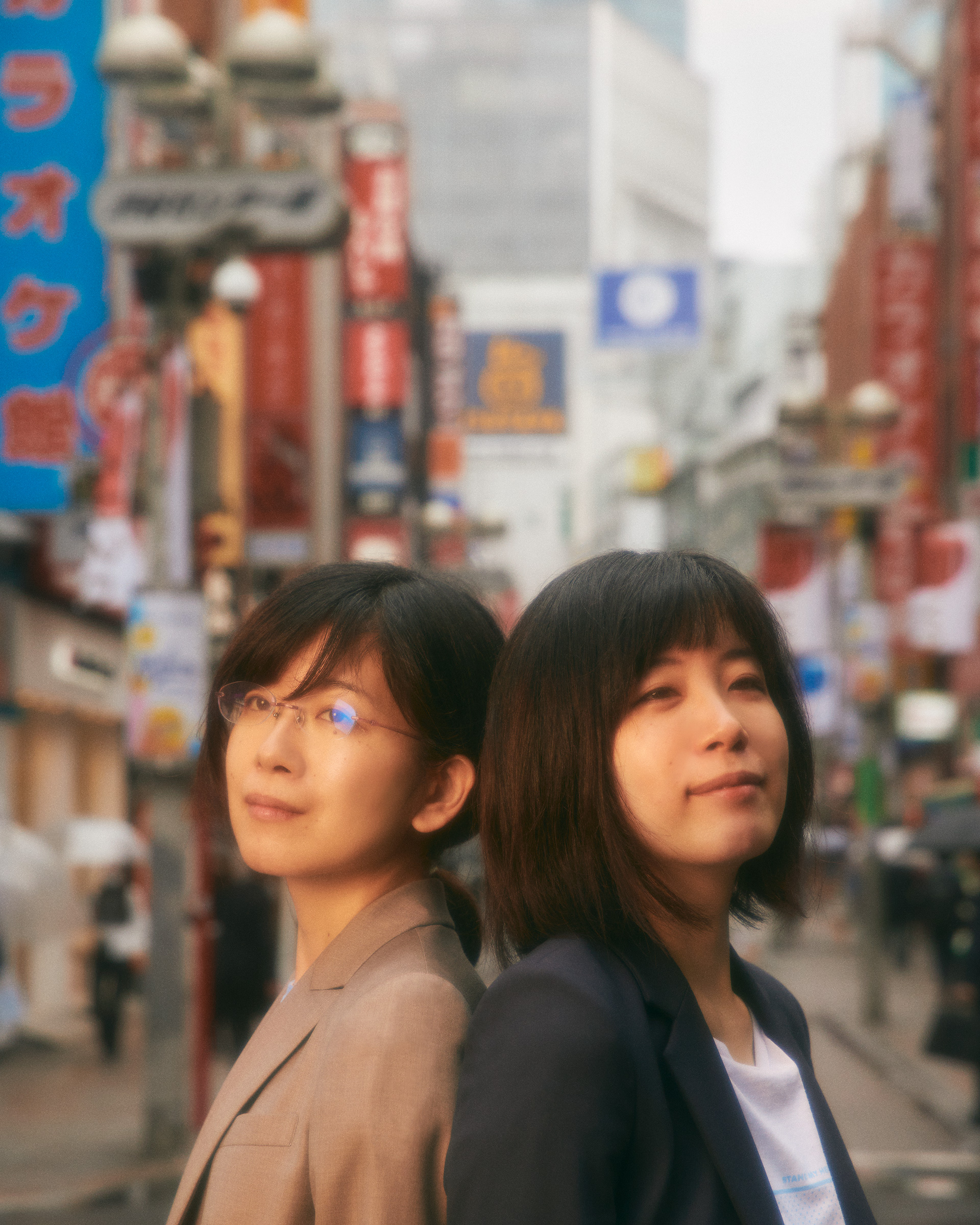Anna and Mizuki Nakajima founded their mobile gaming company coly inc. to solve a problem they saw with mobile games in Japan: too few were designed to appeal to women, and those that were featured flat story lines and unrealistic characters.
Since 2014, the twin sisters have launched four games that are designed to offer deep, life-like characters and rewarding plot lines. “We think we’re creating human beings in a two-dimensional world, rather than two-dimensional characters that look and act like humans,” Mizuki tells TIME from Tokyo.
In one popular game, Stand My Heroes, the protagonist works with a cast of handsome police officers and drug-enforcement agents—some are caring, some are cold on the outside but warm on the inside, some like to joke around, but nearly all of them are designed to eventually fall in love with the player.
It’s not just the narrative-driven games that are different at the Nakajimas’ company: 25% of board members are women, and women fill more than 70% of senior management positions. About 75% of coly’s approximately 240 staffers are women. Those numbers stand out in Japan’s corporate world, where women hold less than 15% of middle and senior management roles—one of the lowest rates among the world’s large economies. Even fewer women hold top leadership positions or sit on company boards.

They’ve had impressive success. Mizuki, the president and CEO, and Anna, the vice president, led the company to an initial public offering on the Tokyo Stock Exchange in February, and the company’s equity value is more than $225 million.
The sisters’ hiring strategy started as a practical matter. It made sense to bring aboard women to help write and design games targeted at women. But they believe coly has become an example of the benefits of equality. “We hope that other more Japanese companies will place more women in management positions, because we know that they are capable,” Mizuki says.
The Nakajimas’ games have developed a loyal community of gamers, and the sisters hope the intimate connection players feel to their characters will have an added effect: helping young women overcome feelings of isolation and loneliness, which the sisters believe is one of the biggest social issues facing developed countries like Japan. “We thought the key for the next generation was to come up with games that could give people hope for tomorrow,” says Anna.
They say that the pandemic, which has hit women particularly hard across the world, makes their mission more important than ever, as games provide a way for women to connect with others. In Japan, women, who are disproportionately employed in part-time or temporary jobs, have borne the brunt of pandemic-related job losses. “By overcoming the challenges [in the game], the characters tell you, ’I know you tried hard, I know you had a long day,’” says Anna. “That’s what we wanted to provide, that women feel that there is someone who sees that they’re going through a lot.”
—With reporting by Aria Chen / Hong Kong and Mayako Shibata / Tokyo
- The 100 Most Influential People of 2024
- Coco Gauff Is Playing for Herself Now
- Scenes From Pro-Palestinian Encampments Across U.S. Universities
- 6 Compliments That Land Every Time
- If You're Dating Right Now, You're Brave: Column
- The AI That Could Heal a Divided Internet
- Fallout Is a Brilliant Model for the Future of Video Game Adaptations
- Want Weekly Recs on What to Watch, Read, and More? Sign Up for Worth Your Time